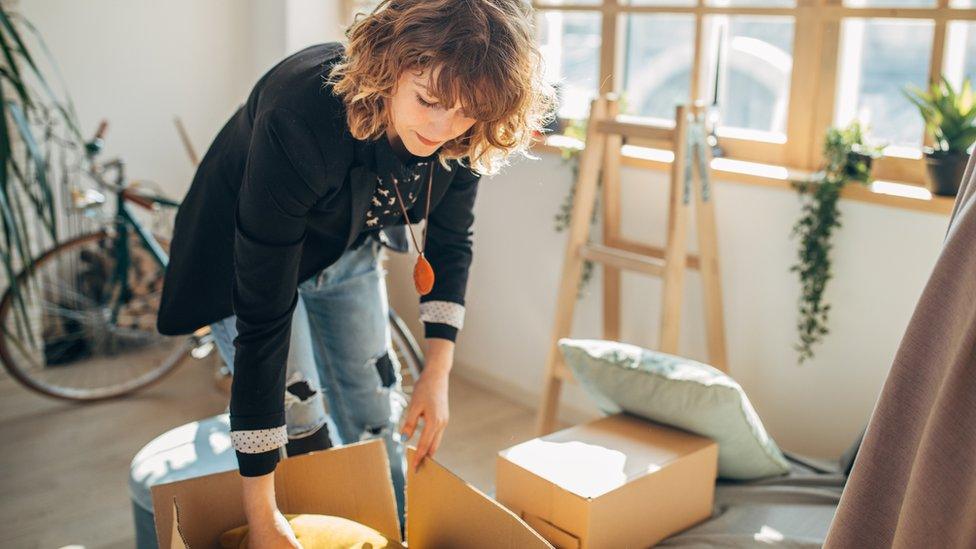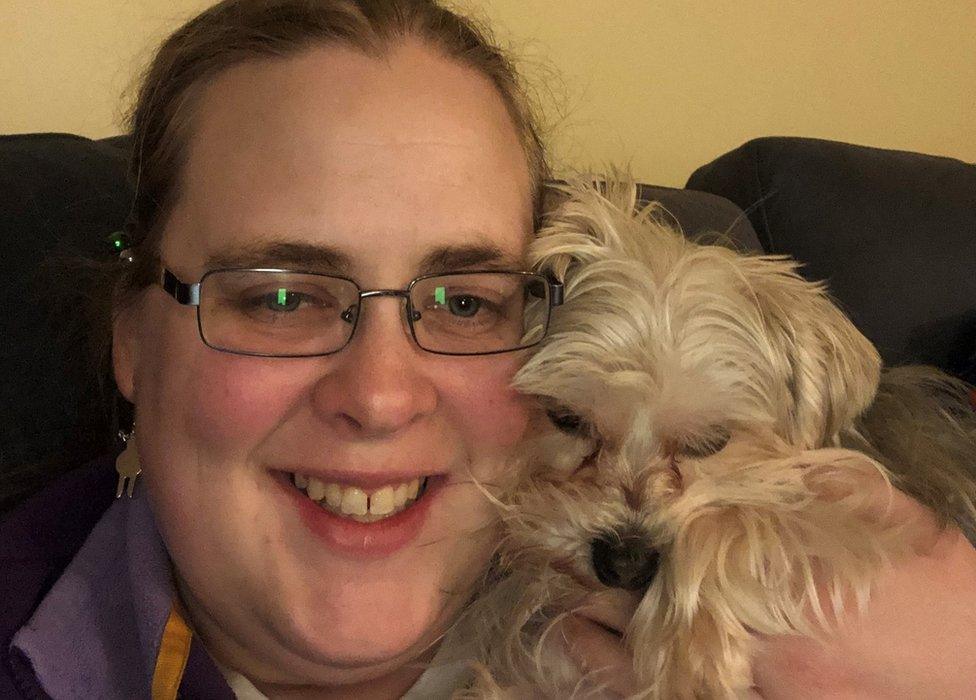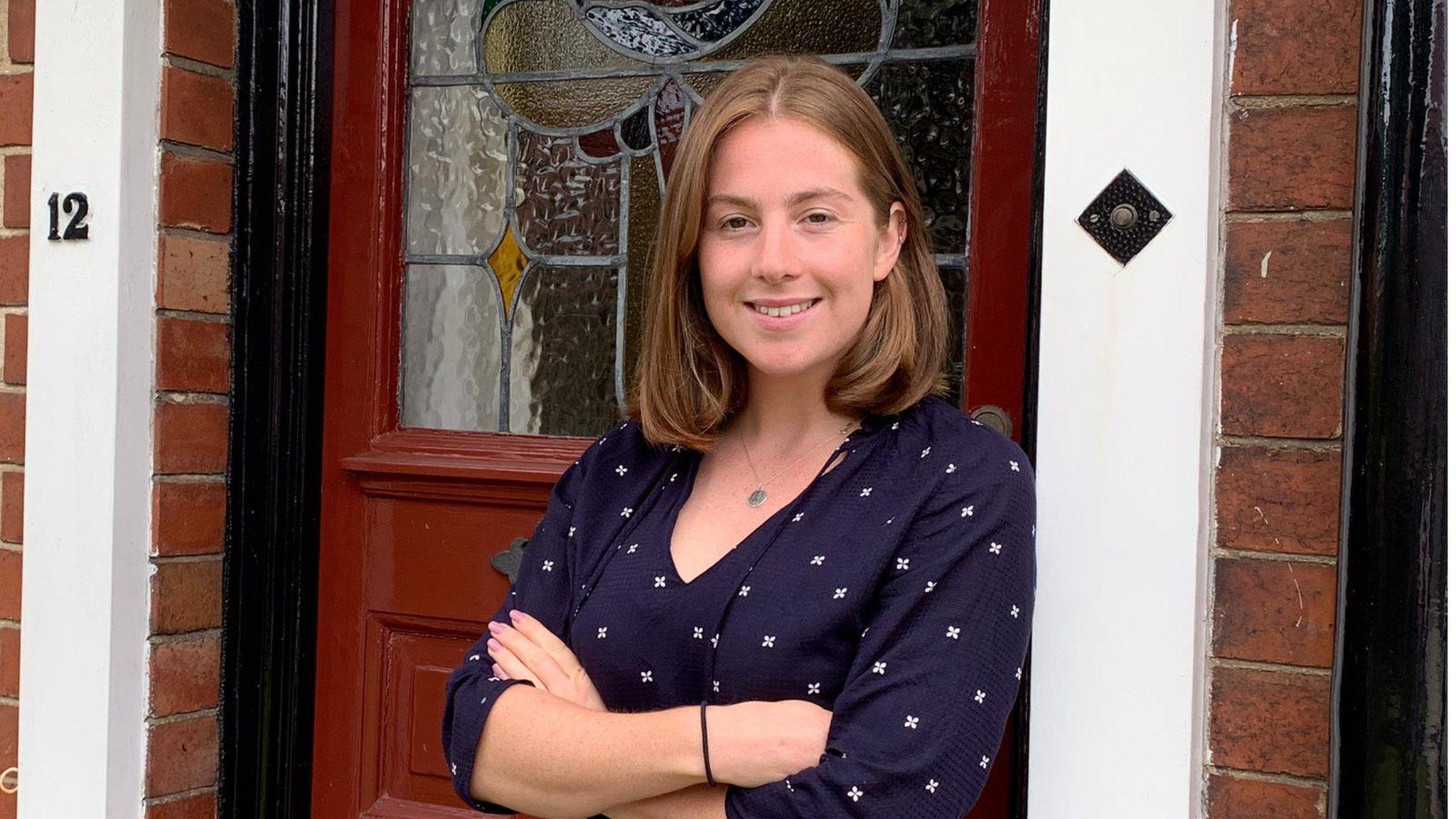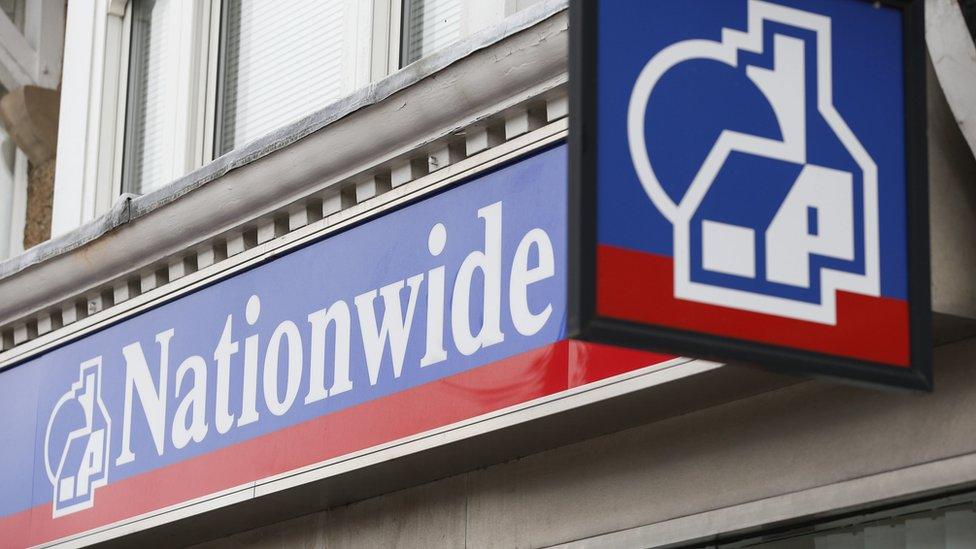Co-ownership: Housing body sees threefold rise in demand
- Published

A housing association that helps people buy homes through shared ownership has received an almost threefold increase in applications over the past seven weeks.
Co-Ownership usually deals with an average of 50 applications per week.
However, since the beginning of July, it has processed about 1,000.
Its director of customer services told BBC News NI the demographic of those approaching the organisation has also changed since lockdown.
Glynis Hobson said it has seen a spike in key workers applying for co-ownership because of the need for much larger deposits in the wake of Covid-19.
Traditionally, the majority of applications would be from couples or single parents on lower incomes, she said.
However, in recent weeks, applications have been received from police officers, healthcare workers, teachers and civil servants.
'I'm thrilled'
Laura Jones is a healthcare worker at the Royal Victoria Hospital in Belfast, who has been approved for a co-ownership loan.

County Down healthcare worker Laura Jones, 33, could not afford the deposit for a new home
The 33-year-old, who has been living with her parents in Annahilt, County Down, could not afford the deposit for a new home.
"I'm definitely not an extravagant person, but I still found it impossible to save the huge amounts banks are now expecting buyers to contribute," she explained.
"I'm lucky to get on well with my mum and dad and it's worked well, but I've always wanted to own a place."
Her brother recently recommended Co-Ownership, but she did not expect her application to be approved.
"I really thought this wouldn't happen for me, given that I didn't have the savings for a deposit, so I'm just thrilled," she said.
"Properties have become so expensive that I started to think I'll never be in a position to buy my own home in the way that my parents did."
Ms Jones is now hoping to move in to her first property in Lisburn in the autumn.
Higher deposits
Jordan Buchanan, chief economist with a property website, put the changing demographic of applicants down to a move by some of the biggest banks to reduce their mortgage deals and alter the rules around deposits due to economic uncertainty.
"We did a survey on February 18, and at that point there were various product deals on offer with particularly low interest rates - first-time buyers here could have secured a 30-year mortgage deal for a house of around £150,000 with a 5% deposit. Now, just six months later, there isn't a single deal at that rate," said Mr Buchanan.
"The credit environment isn't conducive to lending to younger people now as it's generally requiring them to have a 15% deposit.
"When you consider that an average first home is between £120,000 and £130,000, that's a deposit of nearly £20,000. Very few young workers have access to that kind of liquidity."
Because of this, Mrs Hobson said Co-Ownership is now processing more applications from key workers and higher earners who "don't have a problem with income stream".
"The issue is they've saved deposits of 5%, but post lockdown that's not enough."
Working in conjunction with the Department for Communities, Co-Ownership, a not-for-profit organisation and registered charity, allows prospective homeowners to purchase a share of their chosen property up to a maximum purchase price of £165,000.
The department sets the rent and any annual rent increases.
There are currently more than 9,000 Co-Ownership homes in Northern Ireland.
"You pay the mortgage on your bit and pay us rent on our bit, and you might not even need a deposit," said Mrs Hobson.
"Then, when you're able to, you can increase your share in the house bit-by-bit until you own it all."
'Goalposts shifted'
Another applicant who approached the housing association in recent weeks is a key worker who had saved £6,000 in a Help-to-Buy ISA to go towards a 5% deposit on his first home.
"This client had an income of £32,000 and the home he and his partner wanted to buy was £150,000," explained Mrs Hobson.
"But post lockdown, they were being asked for a 15% deposit of £22,000, which was just impossible for them.
"There's so much frustration among young people like that, who saved and saved and then just as they thought they were going to achieve their goal, the goalposts were shifted."
Co-Ownership then bridged the gap between the couple's deposit and what they need to support them becoming home owners.

'Not doing that again'
The increase in applications since then has also been attributed to the constraints of lockdown, Mrs Hobson said.
"Living in rented accommodation with friends or moving in with family was great for some, but very stressful for others.
"'I'm not doing that again', is a line we've heard quite a few times, so it's definitely focused minds on living space, and in many cases holidays, clothes and nights out aren't such a priority. It's become less about the nice car and more about a bit of garden and privacy since lockdown happened."
For Laura Jones, last Thursday's approval of her application signalled the beginning of a new chapter in her life as a property owner.
"Everyone's celebrating exam results today, I'm just celebrating the prospect of owning my own place," she said.
- Published5 August 2020

- Published13 July 2020
